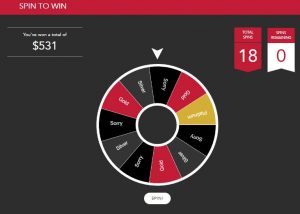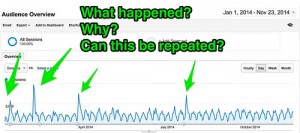What Is A Performance Review?
What You’ll Learn In This Guide
- What a performance review is
- How to write performance reviews
- Performance review statistics & questions
Performance reviews are exactly what they say they are… but how you go about them is a different story. Reviews are meant to help improve an employee’s progress, goals, and overall work performance. They consist of giving constructive feedback while also allowing employees to ask questions. It can also be a time for setting new goals and implementing new strategies. Performance reviews should be more of a continuous feedback loop where managers and employees go back and forth with feedback, progress reports and asking questions.
How To Write A Performance Review
It’s easy to say you conduct performance reviews but are you writing the best reviews to motivate and guide your employees? Using power words and emphasizing what is important to develop their skills and align goals moving forward is key when writing the review. Focus on these aspects when writing performance reviews and take into consideration how each one of these can help manage your team better and give the feedback your employees deserve:
The Definition of
Performance Review
“A time to take collected feedback from employee and employer (or manager) and assess past performance and create new goals for the future.” – iRevü
- Achievements/Mistakes: While this may seem like an obvious thing to put in there, it’s not as easy as you think. Taking the time to actually stop what you’re doing and log an accolade or criticism in a performance management system is a learned habit. Fortunately, real-time feedback tools (with mobile capabilities) make this much easier!
- Improvements/Planning: There’s always room for improvement. Brainstorm new ideas and goals and set out a plan specific for your employee. This will help guide them and also gets your employees motivated and excited for new goals. Planning short and long term strategies and goals for improvement and innovation will help steer your company in the right direction.
- Learning/Managing: Discuss what they have learned or want to learn while working with the company. Writing performance reviews and conducting them is a great resource for managers to get a grasp on how far each employee has come and understand what they want to learn. While using this also evaluates how employees are managing their time for projects and daily tasks.
Performance Review Statistics
If you’re still not convinced that employee performance reviews and feedback are key to engaging, retaining, and employee performance improvement… we pulled together some stats to help you recognize how it can boost all of these:
- 58% of employees say that giving recognition is how leaders could do more to improve engagement.
- Companies with recognition programs that are highly effective at improving employee engagement have 31% lower voluntary turnover.
- Engaged millennials are 64% less likely to say they will switch jobs if the job market improves in the next 12 months, so don’t give them a reason to by not managing their performance!
Performance Review Questions
Asking the right questions is crucial to performance reviews. If you aren’t asking the right questions, time and money is lost. Each review doesn’t have to be different but make sure you alter them to fit that department or team to get a better grasp on what really needs improved, discussed or thrown out.
Expand
Expand on these questions with more insight and tips in our article, Questions To Ask Your Team Every Month.
Performance Review Questions to Ask:
- How can I help make your job easier?
- Which part of your job do you like best?
- What would you like to learn?
- What is your best accomplishment this month?
- How can I help make work more fun?
- What processes need improved?
- Are you crystal clear in your position and what it all entails?
- How are you doing in life?
Performance Review Goals
Performance reviews are bigger than just saying “good job” and here’s a pay increase. They are used to give the feedback and insight your employees and teams need. These reviews create an open line of communication and a more transparent culture. Creating a more engaged team and building relationships with your co-workers is great and the results are even better because it creates employee retention. The next time you go to do a review, keep these in mind and take a look at these goals to set for yourself and your team:
Something to Build on: Work with each employee to help give constructive feedback and work on building off that. Keep the feedback continuous between you and your employee so you both can stay on track and on the same level. This will reduce any confusion and mistakes but also keep up the motivation that your employees need.
Make it and Finish it: While setting goals with your teams is great in theory… it only can go so far… you have to follow up on them, continue discussion on them and finish them. The biggest goal setting mistake you can make is setting goals during reviews and not following up on them, leaving them up in the air for your employee and team.
Open Channels: With the new age of reviews, keeping them consistent and continuous is key to keeping your communications open. Employees crave the feedback, so take time to give insight weekly or every other week with your teams. Keep that “open door” policy in place to let your employees know they can ask for your feedback.
Goals for YOU: As you set goals for your employees you might get lost in the excitement of theirs that you forget to set some for yourself. Take time to sit down and evaluate your goals and what you would like to see happen for your career. It’s important to help your employees with their performance but also take time for yourself.
Business & Finance Articles on Business 2 Community(42)
Report Post





